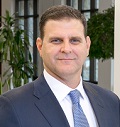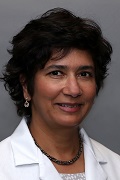
The Future of Telehealth: Implications for Health Care Practitioners
Activity description
Telehealth, or virtual medicine, has become an essential part of delivering health care services and is currently utilized by over 75% of hospitals in the United States. During the recent pandemic, telehealth has ensured continuity of care, allowing health care practitioners (HCPs) and health care teams to provide regular health care across the care continuum despite the limitations of social distancing. It offers convenience, increased efficiency and decreased costs. However, many HCPs have questions regarding best practices in digital health utilization—as well as questions surrounding reimbursement, legal policies and regulations. In this activity, learners will benefit from an overview of the current state of digital health, future capabilities and how utilization may influence the health care team and practice on multiple levels. Specifically, this activity will review reimbursement and legal and regulatory implications and will examine evolving digital health policies and utilization guidelines.
For more information about the Digital Health Continuing Education Series and future offerings, please click here.
Provided by
This activity is jointly provided by OptumHealth Education, Center for Clinician Advancement and Center for Digital Health and Innovation.
Commercial support
No commercial support was received for this activity.
Required hardware/software
Please ensure you are using the web-browser Chrome and disable any pop-up blocking software. Click here for information on how to enable pop-ups.
Target Audience
This activity is designed to meet the educational needs of case managers, counselors, educators, nurses, nurse practitioners, pharmacists, pharmacy technicians, PAs, physicians, psychologists, social workers, therapists and other HCPs who have an interest in telehealth.
Learning Objectives
At the end of this educational activity, participants should be able to:
- Discuss the current state of digital health and its utilization across the care continuum
- Describe the impact of the COVID-19 pandemic on digital health utilization and how telehealth value and implementation may be affected as the pandemic landscape continues to change
- Examine predicted future trends for virtual medicine, including applicability across medical specialties and health care practices
- Identify legal, regulatory and reimbursement issues that must be considered when implementing digital health into health care practice, and describe how these issues may impact the care team
Additional Information
| Attachment | Size |
|---|---|
| 996.46 KB |
Presenters
 | James Geracci, MD Chief Medical Officer, Center for Digital Health and Innovation |
 | Brian Heimer, MD Medical Director, Virtual Health, RMD Southern Indiana, American Health Network |
 | Sarita Nori, MD Staff Dermatologist and Director of Tele-dermatology, Reliant Medical Group |
 | Moderator: Sonia Samagh, MD, MBA, Vice President, Center for Digital Health and Innovation |
About the presenters
Dr. James Geracci is the chief medical officer for Optum Health Services’ Virtual Medical Group. He is responsible for strategy development, implementation and operational oversight of virtual health care services ensuring achievement of Optum’s goal of helping people live healthier lives and helping the health system work better for everyone.
Dr. Geracci is a senior physician executive with more than 27 years of health care leadership experience in both the civilian and military health care sectors. Most recently, he was a vice president/chief medical officer with Ascension Healthcare Texas. Prior to that, he served in various leadership roles in one of the largest and most complex health care enterprises in the world (the United States Army). He retired at the rank of colonel and has led military health care teams at all levels including as medical director of multiple large clinics, as department chief for the military’s largest primary care department, and as chief medical officer for an Army division and corps. Dr. Geracci is a proven effects-oriented leader experienced in building, developing and leading multidisciplinary teams capable of planning and executing comprehensive health services support in the most complex environments including multiple combat deployments to Iraq and Afghanistan.
A disruptive innovator, he has effectively driven and led organizational change from the bottom up and top down in the largest civilian and military health care organizations. As Director of Prehospital Trauma Care for the Department of Defense’s (DoD’s) Joint Trauma System, Senior Combat Capability Developer for the Army Medical Department, Consultant to the Army Surgeon General for Operational and Deployment Medicine, and while serving on the DoD’s Committee on Tactical Combat Casualty Care, he helped to transform military medicine into a true learning health care system ensuring hard-learned lessons of the past 20 years of war have not been lost but rather codified in doctrine and policy.
A native of Las Vegas, Nevada, Dr. Geracci’s education includes degrees/certifications from Arizona State University, Uniformed Services University School of Medicine, US Army Command and General Staff College, and both University of Pennsylvania/Wharton and University of Texas/McCombs Schools of Business. He is certified by the American Board of Family Physicians and is a Fellow of the American Academy of Family Physicians. Among his military awards are the Legion of Merit, Bronze Star Medal, Defense Meritorious Service Medal, the Air Medal, and the Order of Military Medical Merit. He has authored numerous scholarly articles/book chapters and presented lectures both nationally and internationally on various professional topics.
Dr. Brian Heimer is a passionate family physician with over 21 years of experience who has committed himself to the reinvention of the patient care experience through the adoption and propagation of all things virtual care. Working tirelessly towards achieving the Quadruple Aim, he serves as the medical director for virtual health at American Health Network, which is part of Optum. He is also the regional medical director for Southern Indiana and Kentucky. Brian is an Optum Care senior partner and has been involved in national leadership for many years.
He partnered closely with Anthem and state legislators and campaigned successfully to rewrite laws that enabled telemedicine to be performed in the state of Indiana. Dr. Heimer was responsible for planning, developing and implementing a robust multispecialty telemedicine program, which he continues to oversee daily across multiple platforms.
Dr. Heimer is engaged in trial of new technologies and is actively piloting prototype remote patient monitoring devices as well as new modalities for patient interaction such as experimental exam room artificial intelligence and ambient recording. He continues to be involved in the community and remains active in both inpatient and outpatient care. He is motivated to reduce the total cost of care by transitioning to value-based medicine.
Dr. Heimer holds multiple directorships and remains a multi-year county medical society president and multi-year chief of staff at Baptist Health. He is actively involved in health care legislative review, the Indiana State Medical Association and the strategic recruitment of practices and physicians. He is also committed to performing clinical research as a principal investigator with emphasis on endocrinology, pulmonary disease, oncology and obesity.
Dr. Sarita Nori is a staff dermatologist and director of teledermatology at Reliant Medical Group, which is part of Optum Care. She is also a teledermatologist for Arista MD, Dermatologist on Call, and Teladoc. Previously, she was the staff dermatologist at Harvard Vanguard Medical Associates, where she piloted an internal, physician-to-physician teledermatology program with an average volume of 20 to 35 cases each day.
Dr. Nori is passionate about telemedicine and has personally seen its value for both clinicians and patients. She has been able to treat patients rapidly via telemedicine using photos from patients’ smartphones. When patients either could not come into the office or would have had to wait a long time for an in-person appointment, she was able to provide rapid, convenient diagnosis and treatment. Dr. Nori hopes that, not too far in the future, a nationwide teledermatology practice would be possible so that patients and providers could have their dermatology questions answered within 24 hours.
Dr. Sonia Samagh is a founding member and vice president of The Center for Digital Health (CDH) and Innovation at OptumHealth, a part of UnitedHealth Group. She holds an MBA from Stanford University and an MD from the University of California, San Francisco School of Medicine. She has worked for the past 10 years at health care organizations, leading medical groups through value-based care transformation and serving in corporate strategy, operations and venture roles. She led and implemented digital health strategy and innovation efforts across Optum, including digital health product development, corporate partnerships and clinical re-design for coordinated in-person and virtual care delivery.
As a part of CDH, Dr. Samagh is incubating and launching digital health products and services across telemedicine, eCare / remote patient monitoring and digital therapeutics, care at home, and virtual care delivery including artificial intelligence/machine learning, asynchronous care and clinical decision support.
Previously, she led the Optum Digital Response Team, which included 115 teammates rapidly deploying telehealth solutions and remote patient monitoring across the country, adding over 15,000 providers onto video visit platforms in 8 weeks and completing over 1.3 million virtual visits in 2020 with patients accessing their own Optum provider virtually. Dr. Samagh also led cross-enterprise innovation partnerships and corporate venture health care technology investing, including direct early-stage health tech investments.
Activity planners
Sarah Chart, RN
Vice President
OptumHealth Education
Elizabeth Albert, MD
Clinical Activity Manager
OptumHealth Education
Disclosures of relevant financial relationships
In accordance with the Accreditation Council for Continuing Medical Education's (ACCME) Standards for Integrity and Independence in Accredited Continuing Education, OptumHealth Education (OHE) requires all those in control of educational content to disclose their financial relationships with ineligible companies within the prior 24 months. Ineligible companies are defined by the ACCME as companies whose primary business is producing, marketing, selling, re-selling, or distributing health care products used by or on patients. Individuals must disclose all financial relationships, regardless of the amount, with ineligible companies and regardless of their view of the relevance of the relationship to the education. OHE ensures that the content is independent of commercial bias.
Dr. Sarita Nori has disclosed that she is employed by Teladoc, MD Live and Arista MD. The remaining activity faculty or planners have no financial relationships to disclose.
Method for calculating CE credit
CE credit was calculated by the complexity of content.
Accreditation statement In support of improving patient care, this activity has been planned and implemented by OptumHealth Education, Center for Clinician Advancement and Center for Digital Health and Innovation. OptumHealth Education is jointly accredited by the Accreditation Council for Continuing Medical Education (ACCME), the Accreditation Council for Pharmacy Education (ACPE) and the American Nurses Credentialing Center (ANCC), to provide continuing education for the health care team.
In support of improving patient care, this activity has been planned and implemented by OptumHealth Education, Center for Clinician Advancement and Center for Digital Health and Innovation. OptumHealth Education is jointly accredited by the Accreditation Council for Continuing Medical Education (ACCME), the Accreditation Council for Pharmacy Education (ACPE) and the American Nurses Credentialing Center (ANCC), to provide continuing education for the health care team.
Credit designation statements This activity was planned by and for the health care team, and learners will receive 1.00 Interprofessional Continuing Education (IPCE) credits for learning and change.
This activity was planned by and for the health care team, and learners will receive 1.00 Interprofessional Continuing Education (IPCE) credits for learning and change.
Nurses
The participant will be awarded up to 1.00 contact hour(s) of credit for attendance and completion of supplemental materials.
Nurse practitioners
The American Academy of Nurse Practitioners Certification Program (AANPCP) accepts credit from organizations accredited by the ACCME and ANCC.
Pharmacists/Pharmacy technicians
This activity is approved for 1.00 contact hour ([0.10] CEU) in states that recognize ACPE.
Attending the full program will earn 1.00 contact hour.
Unique Activity Number(s): JA0007123-9999-21-075-H04-P/T
Physicians
OptumHealth Education designates this enduring activity for a maximum of 1.00 AMA PRA Category 1 Credit(s)™. Physicians should claim only the credit commensurate with the extent of their participation in the activity.
PAs
The American Academy of Physician Assistants (AAPA) accepts credit from organizations accredited by the ACCME.
Case managers
The Commission for Case Manager Certification has approved this program for a maximum of 1.00 clock hours for Certified Case Managers (CCM).
Psychologists
OptumHealth Education is approved by the American Psychological Association (APA) to offer continuing education for psychologists. OptumHealth Education maintains responsibility for this program. 1.00 CE hour.
Social workers![]() As a Jointly Accredited Organization, OptumHealth Education is approved to offer social work continuing education by the Association of Social Work Boards (ASWB) Approved Continuing Education (ACE) program. Organizations, not individual courses, are approved under this program. State and provincial regulatory boards have the final authority to determine whether an individual course may be accepted for continuing education credit. OptumHealth Education maintains responsibility for this course. Social workers completing this course receive 1.00 continuing education credits.
As a Jointly Accredited Organization, OptumHealth Education is approved to offer social work continuing education by the Association of Social Work Boards (ASWB) Approved Continuing Education (ACE) program. Organizations, not individual courses, are approved under this program. State and provincial regulatory boards have the final authority to determine whether an individual course may be accepted for continuing education credit. OptumHealth Education maintains responsibility for this course. Social workers completing this course receive 1.00 continuing education credits.
Counselors and/or marriage and family therapists
CA: The Board of Behavioral Sciences has deferred CE course approvals to APA and ASWB for its licensees. See those approvals under Psychologists and Social Workers.
Other States: If your state is not specifically listed, nearly all state Counselor and MFT boards accept either APA or ASWB approval, or are reciprocal with other state licensing board approvals, such as those listed below. Check with your board to be sure.
Attendance
A certificate of attendance will be provided to learners upon completion of activity requirements, enabling participants to register with licensing boards or associations that have not been preapproved for credits. To apply for credit types not listed above, participants should use the procedure established by the specific organization from which they wish to obtain credit.
Available Credit
- 1.00 ACPE - Pharmacists
- 1.00 ACPE - Pharmacy Technicians
- 1.00 AMA - Physicians
- 1.00 ANCC - Nurses
- 1.00 APA - Psychologists
- 1.00 Attendance - General Attendance
- 1.00 CCMC - General - Case Managers
You must be logged into your account to participate in this activity. Get started by clicking “Register” and completing the “Pre-Activity Assessment”; then follow the prompts at the bottom of the screen. At the end of the activity, you will be able to view, save or print your certificate of participation. A complete listing of your activities can be found under “My Account,” “My Activities.”

 Facebook
Facebook Twitter
Twitter LinkedIn
LinkedIn Forward
Forward